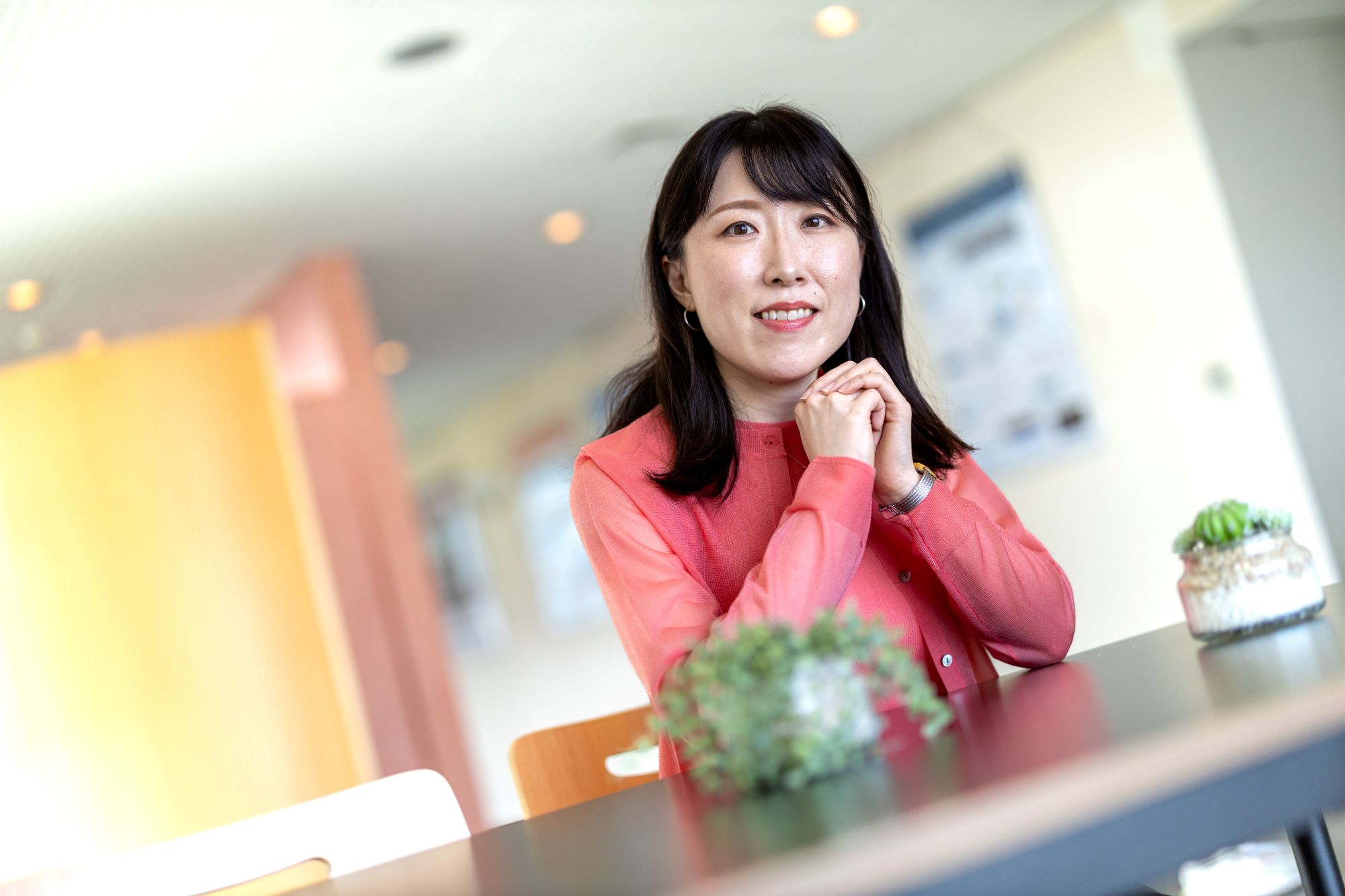
Dr. Shizuka Shirai, Associate Professor of Education Technology, Cybermedia Center
"Equitable Education for All: Researching the transformation of education technology in the information age"
As our information-driven society progresses at an ever-increasing pace, there is an urgent need to develop and produce human resources with expert knowledge and skills in information, a need that has further increased society's expectations of universities. Dr. Shizuka Shirai specializes in education technology and aims to create learning support that is tailored to the needs of each individual. She has been conducting research on human-computer interaction, applying AI, IoT and XR (cross reality) technologies. In recent years, she has been engaged in an international research collaboration with University College London in the UK.
Solving challenges for e-learners in mathematical expressions on interfaces
Dr. Shirai takes a multifaceted approach to various challenges in order to improve the effectiveness of the learning environment. In science and mathematics e-learning, entering and editing mathematical expressions on a Learning Management System (LMS) is a challenge, and the burden on learners when creating and editing documents containing mathematical expressions is a major issue. In her latest research, Dr. Shirai has successfully developed a rich text editor plug-in that implements a formula input interface using a formula prediction conversion method. The results of this research have been accepted for publication in the Journal of Information Processing [1], and the developed plug-in took second place at the Best Moodle Innovation Awards for 2023.

Optimizing learning of individual students through XR technology
Dr. Shirai is also conducting research on the application of XR technology to adaptive learning and mixed reality technology in the virtual space of education. For example, she leads research to develop a model for measuring and estimating the state of learners to realize individually-optimized education and learning according to the proficiency level and state of each learner [2], and research on visualization methods for education and learning support information. In collaboration with Professor Mutlu Cukurova, a specialist in learning and AI at University College London in the UK, they have developed a method for visualizing the activity level of student participation in collaborative learning by applying mixed reality technology and have developed a method for visualizing the activity level for the teaching assistant to recognize when a learning group needs support and to enhance the effectiveness of their collaborative learning [3].
Enhancement of informatics education for a new generation
The enhancement of information education is a pressing issue worldwide. Dr. Shirai has also devoted many years to researching and teaching information education in primary, secondary, and higher education. In Japan, all high school students are required to study informatics content, including programming [4]. The Ministry of Education, Culture, Sports, Science and Technology is promoting online learning and video production to improve the expertise of high school teachers, for which Dr. Shirai was appointed as a lecturer and has helped to produce video materials.
Within Osaka University, information education is being restructured as a result of curriculum reform. As a member of the Cybermedia Center, which is responsible for this restructuring, Dr. Shirai manages the design of information education courses, including the development of teaching materials and the implementation of faculty development training. It is also important to consider students who do not major in informatics when designing these types of courses.
From April 2025, students who have studied informatics at high school will enter university, making it is necessary to consider the content to be covered in general information education. For the time being, there are likely to be large differences in existing knowledge and experience between students, so Dr. Shirai aims to further improve learning support at Osaka University, making use of her past achievements in research and education.
What would a “future society where life shines brightly” look like for you?
“Since the pandemic in 2020, online and virtual education have progressed rapidly. In this post-pandemic era, the realization of a new type of education that leverages the advantages of both online/virtual and in-person systems is anticipated. I will keep firm in my commitment to education technology while aspiring to achieve equitable and quality education for people around the world.”
[1] S. Shirai, T. Nakahara, T. Fukui, "MathTOUCH Editor: Rich-text Editor for Math E-learning Using an Intelligent Math Input Interface," Journal of Information Processing, 2023, Volume 31, Pages 775-785, Released on J-STAGE November 15, 2023, Online ISSN 1882-6652, https://doi.org/10.2197/ipsjjip.31.775
[2] K. Sakamoto, S. Shirai, N. Takemura, J. Orlosky, H. Nagataki, M. Ueda, Y. Uranishi and H. Takemura, "Subjective Difficulty Estimation of Educational Comics Using Gaze Features," IEICE Transactions on Information and Systems, vol. E106-D, no. 5, pp. 1038-1048, 2023, doi: https://doi.org/10.1587/transinf.2022EDP7100
[3] R. Takahashi, S. Shirai, H. Nagataki, T. Amano, M. Alizadeh, M. Ueda, N. Takemura, M. Cukurova, H. Nagahara and H. Takemura, "Exploring Mixed Reality Group Activity Visualisations for Teaching Assistants to Support Collaborative Learning," HCI International 2023 – Late Breaking Posters. HCII 2023, Communications in Computer and Information Science, vol 1957. Springer, Cham.
[4] S. Kanemune, S. Shirai and S. Tani, "Informatics and Programming Education at Primary and Secondary Schools in Japan," OLYMPIADS IN INFORMATICS, Vol.11, Jul. 2017, pp. 143-150.
Text: Saori Obayashi/Edit: Christopher Bubb